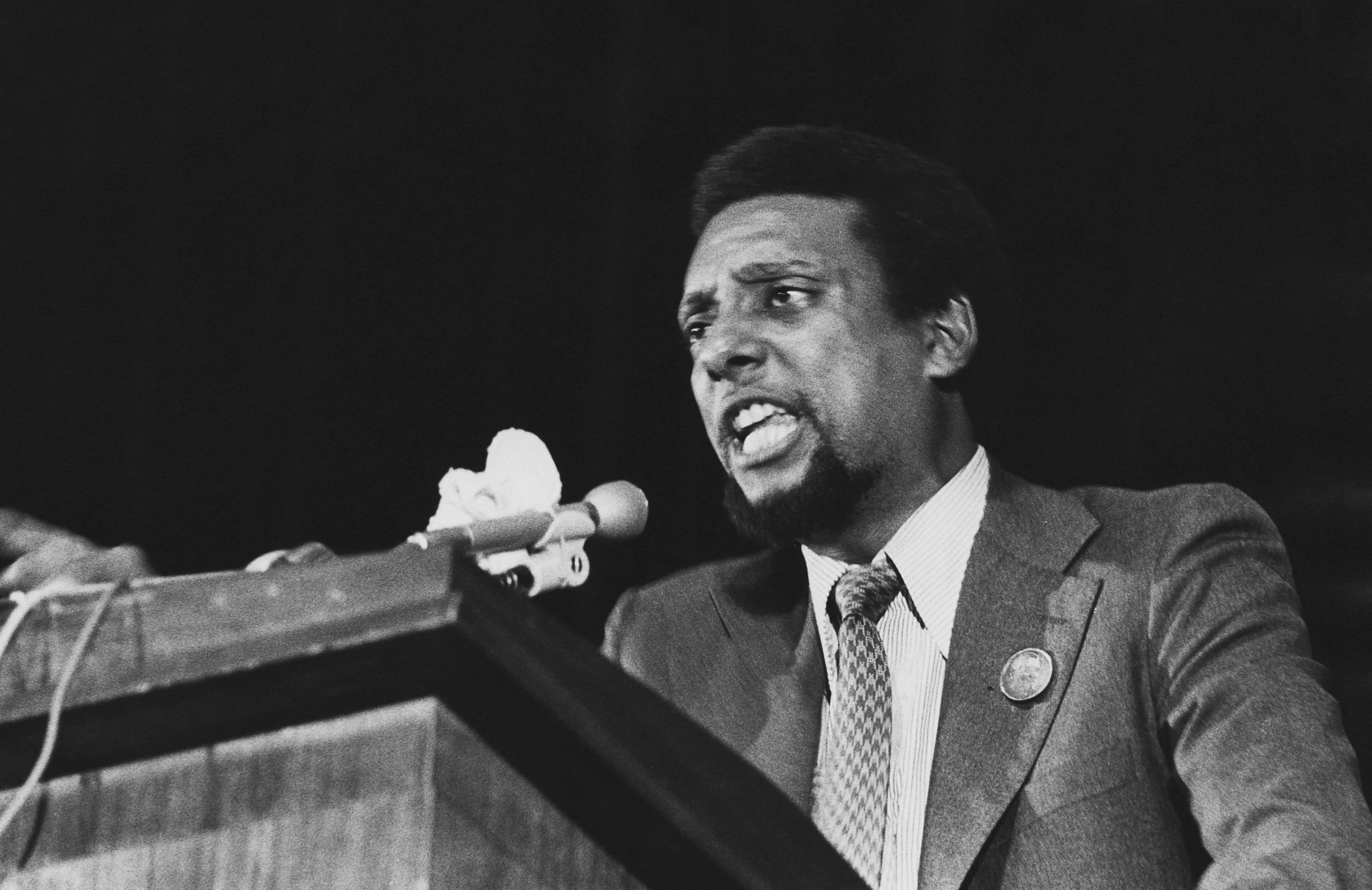How did Stokely Carmichael die? H Rap Brown succeeded civil rights activist as SNCC chairman
-
 Trinidad-born American black activist Stokely Carmichael (1941 - 1998, later Kwame Ture) giving a speech, circa 1974. (Photo by Archive Photos/Getty Images)
Trinidad-born American black activist Stokely Carmichael (1941 - 1998, later Kwame Ture) giving a speech, circa 1974. (Photo by Archive Photos/Getty Images)Stokely Carmichael, who would later change his name to Kwame Ture, was one of the most charismatic and influential leaders of 1960s civil rights.
Known for promoting the expression “Black Power,” he was pivotal in moving the movement away from nonviolent integration to a more militant view which preached that Black people must shape their own destiny. Carmichael passed away November 15, 1998, in Conakry, Guinea at age 57.
Stokely Carmichael died of prostate cancer, for which he sought treatment in the United States before returning to West Africa. He lived in Guinea his last decades and continued to be active in Pan-African political organizings.
Stokely Carmichael helped popularize the slogan "Black Power" and formed a lot of theory around the concept. I wonder why Clinton was scared of that? pic.twitter.com/5c0yhp6IEd
— Torraine Walker (@TorraineWalker) July 30, 2020Carmichael was born in Trinidad in 1941 and raised in New York City, where he started participating in activism as a teenager by taking part in protests against segregation. He came of age as a leader when he arrived at Howard University and got involved in the Student Nonviolent Coordinating Committee (SNCC).
After his graduation in 1964, he worked full time in the Deep South as a member of Freedom Summer, participating in an effort led by civil rights activists to register Black voters throughout Mississippi and Alabama.
His own encounters, with multiple arrests, physical altercations and the sight of peaceful protesters nudged him in a more militant direction.
Stokely Carmichael’s rise in power within the SNCC and his legacy
In May 1966, Carmichael replaced John Lewis as the chairman of SNCC and initiated a shift in the organization’s course.
With his leadership, SNCC moved away from its original commitment to nonviolence and interracial cooperation. One month after being elected chair, at the Meredith March in Mississippi, Carmichael would famously issue his call for “Black Power.”
The slogan galvanized younger activists but drew criticism from the civil rights leaders who feared it alienated potential white allies in their movement including Martin Luther King Jr. Still, Carmichael contended that the slogan reflected a mounting desire among Black Americans to chart their own political fate.
Happy Birthday to the late civil rights activist, Baba Kwame Ture aka Stokely Carmichael.
— AFRICAN & BLACK HISTORY (@AfricanArchives) June 29, 2024
“We are saying that there is a system that allows for one or two Black people to get out and that's the rationale for keeping other Black people down.” pic.twitter.com/Np7YsAXZ8iStokely Carmichael’s time at the helm of SNCC was brief. The institution splintered along ideological lines in 1967, and he soon joined the Black Panther Party as its honorary prime minister.
This, in turn, was short-lived, as Carmichael broke up with the Panthers in 1969 because of its openness to work with white radicals. He moved permanently to Guinea that year, took the name Kwame Ture and dedicated himself to Pan-Africanism, through the All-African People’s Revolutionary Party.
Upon Carmichael's resignation from SNCC, he was replaced by H. Rap Brown, another prominent figure. Brown, who later changed his name to Jamil Abdullah Al-Amin, was recognized for his speeches and further pushed the organization in the direction of Black nationalism.
He was a political activist who became a completely different figure later in life. Al-Amin was convicted in 2002 of the killing of Fulton County Deputy Ricky Kinchen and wounding of another officer who sought to serve him an arrest warrant. He was held in federal custody until his death in November 2025.
TOPICS: Stokely Carmichael, Jamil Al-Amin (Formerly H. Rap Brown), John Lewis, Kwame Ture, Black Panther Party, Black Power, Human Interest, SNCC, Student Nonviolent Coordinating Committee